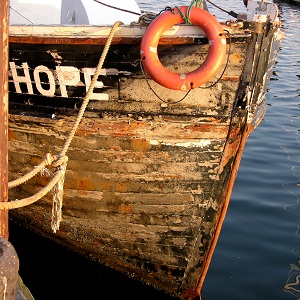Have you ever been involved in a conflict you just couldn’t imagine being resolved? In other words, a conflict that was so entrenched, you felt hopeless?
Researchers studying the role of emotions in the context of intractable (lengthy, all-encompassing, and possibly violent) conflicts have begun to look at the emotion of hope to understand what effect it can have on conciliatory attitudes. Hope is considered an important emotion in conflict resolution because it involves thinking about different ways of doing things and motivates people to support peace. In addition, the absence of hope in prolonged conflicts can create a self-fulfilling prophecy that creates an atmosphere where, indeed, nothing ever changes.
To shed light on these issues, researchers have recently looked at the role that implicit theories play in the context of extremely difficult conflicts. Implicit theories are often unconscious beliefs that people hold about the changeable nature of people and conditions (incremental beliefs), or their fixed and unchangeable nature (entity belief). They hypothesized that for people to believe that it is possible for a specific conflict to be resolved, they must first believe that violent, prolonged conflicts can change in general.
In the first study, they found that the more Jewish Israelis believed that difficult conflicts had the potential to change, the more they experienced hope regarding the Israeli-Palestinian conflict, and the more willing they were to make major concessions toward a resolution of the conflict.
In a subsequent study, participants were randomly assigned to read an article that emphasized either the malleability of conflicts (incremental condition), or the fixed quality of conflicts (the entity condition). The results confirmed that participants in the malleable-conflict condition expressed greater hope regarding the conflict, and indicated a greater willingness for concessions in the conflict than those in the entity condition.
This is an important discovery for practitioners. Using the relatively simple method of introducing disputants to the idea of conflict malleability “may serve as a basis for a large range of long-term educational programs to indirectly promote hope within conflict situations” (p. 72).
Cohen-Chen, S., Halperin, E., Crisp, R. J., & Gross, J. J. (2014). Hope in the Middle East Malleability Beliefs, Hope, and the Willingness to Compromise for Peace. Social Psychological and Personality Science, 5(1), 67-75.
